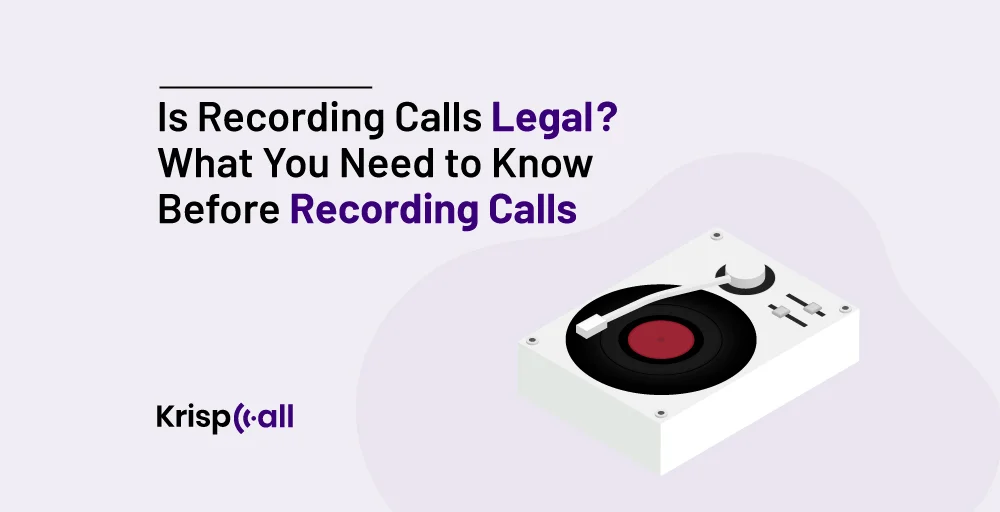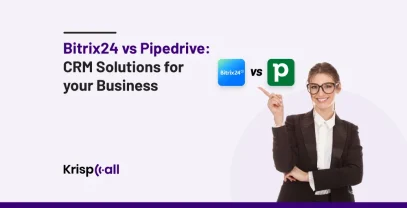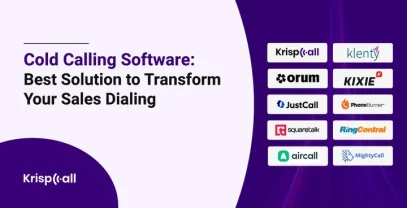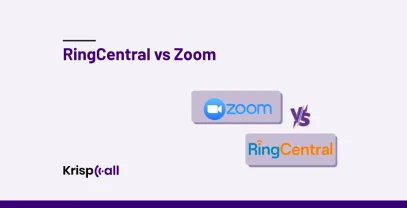HOLD UP ON RECORDING THAT CALL! Thinking about taping a call? Wait! ☎️ Ever wonder if it’s really legal to tape calls? Like most of the rest of existence, the reaction isn’t a straightforward yes or no.
Perhaps you want to prerecord some information or a crucial conversation. Whatever the case, you should ensure you know the relevant laws before asking for disclosure.
This guide will inform you about the Is Recording calls legal & Laws regarding call recording in the USA & Canada as of 2024, including the legislation and regulations, and learn about one-party and two-party consent.
- Violating laws requiring consent to record phone calls can result in severe criminal and civil penalties.
- One-party consent implies that only one participant in the conversation must agree to the recording.
- Two-party consent means that all parties to the conversation must agree before a third party can record it.
- Some tips for recording calls and conversations are listening carefully, speaking clearly, and eliminating distractions.
- Interviews, client meetings, and conference calls are the phone calls that should be recorded.
🔑 KEY HIGHLIGHTS
Is it Legal to record phone calls?
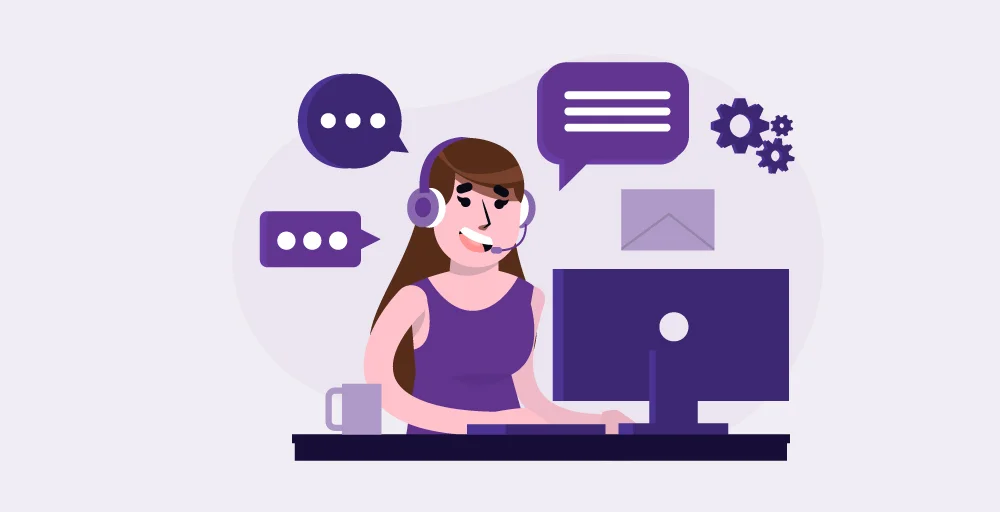
Yes, it is legal to record phone calls. However, informing other individuals that the call is being recorded is considered a best practice. Recording phone calls is also sometimes called wiretapping, which is the term used to view phone recordings made for legitimate and royal criminal law applications.
About Phone Calls Recording Laws by State
In most states of the United States, only one party has to agree to record a phone call. That implies it’s allowable for the interviewer to tap the record button without anyone knowing about it secretly. However, in 11 states, two-party consent is conditional. Those states are California, Delaware, Florida, Illinois, Maryland, Massachusetts, Montana, Nevada, New Hampshire, Pennsylvania, and Washington.
This means that if the recording of phone conversations in any of these states is allowed, everyone connected to the call must know about it and seek permission.
What is One-Party Consent and Two-Party Consent?
One-party and two-party consent are terms used to describe the legal necessity of recording conversations, most often relevant to telephone calls and meetings.
In the case of one-party consent, the only individual in the conversation has to give consent to record the conversation. This imposes that you may conduct the recording without your party’s permission. One-party consent laws exist in 37 states in the U.S., such as Texas, New York, and New Jersey.
When a state has two-party consent, also called all-party consent, every individual involved in the talk or conversation must approve the recording for it to be considered legal. Therefore, everyone participating in the conversation must expressly consent to be recorded. Two-party consent is in states like California, Florida, and Illinois.
Call Recording Laws in USA & Canada
🔥 Note that most states in the US are one-party consent states. This means that only one individual engaged in the phone call must agree that the call can be recorded.
Normally, the individual who places the call is the consenting party. Nonetheless, fourteen states use two-party consent. Therefore, you and the individual with whom you interact must consent to being recorded. The two-party consent requires states 👇:
- California
- Connecticut
- Delaware
- Florida
- Illinois
- Maryland
- Massachusetts
- Michigan
- Montana
- Nevada
- New Hampshire
- Pennsylvania
- Vermont
- Washington
Each state has unique rules for recording a phone call. Consult an attorney to acquire guidelines on each state’s laws if necessary. Nevertheless, in general, if you anticipate recording calls with individuals located in multiple states, just get the approval of all parties involved.
On the other hand, Canada has all parties consent to call recording. This means that you can only record a call when you obtain informed consent from all parties involved.
Recording Phone Calls & Conversations between States
The complexity of recording phone calls and conversations between states arises from different wiretapping laws and consent requirements. During calls between people from various states, it is essential to be aware of federal and state laws to remain legally compliant.
While federal law allows recording with one-party consent from the person conducting the recording, some states have implemented two-party consent, i.e., the consent of all involved parties.
To remain on the safe side when recording calls between states, it is recommended to ask all parties involved for their consent. Moreover, familiarity with wiretapping laws in each state and following the strictest consent procedure also contribute to recording legality.
Penalties for Violating Call Recording Laws
The consequences of violating laws requiring the consent of phone call recordings are severe, and both criminal and civil penalties can be applied. Criminal penalties vary depending on the seriousness of the offense and the state in question, and violators of consent laws, such as recordings for unauthorized individuals or groups, would be subject to fines, imprisonment, or both. Similarly, civil penalties could be applied, and individuals who suffer from an invasion of their privacy have the right to initiate legal action and collect damages.
Each state has its own set of rules and consequences, and ignorance of the law is never a valid excuse. Compliance involves obtaining specific consent within the jurisdiction in which you are operating, making call recordings, and avoiding costly legal fees.
Tips for Recording Calls & Conversations
To make the most of the call and record it safely, legally, and respectfully to everyone, follow these easy tips 👇:
1. Be open and honest
It is not only a requirement for most jurisdictions but also the only option to establish trust and behave properly. To protect yourself from misunderstandings, inform the interlocuter at the beginning of the conversation that it is being recorded.
2. Listening Carefully
Recording calls requires full attention while ensuring every word spoken is accurately captured. Engaging in the conversations allows you to capture the critical aspects, colorations, and particulars that may be critical in the future. Additionally, it promotes respect for the parties and maximizes the effectiveness of communication.
3. Speaking Clearly
Clear speech is crucial for the recording process. Let all the participants speak clearly and at an even pace to help the recording capture distinctly. Pronouncing words correctly and not speaking over one another makes the record clear and promotes comprehension during playback.
4. Eliminate Distractions
Distractions can interfere with your focus and cause you to miss vital information that should be included in your recording. To avoid such a situation, organize your environment so that you can pay maximum attention during your calls.
5. Ask Participants to Identify Themselves
When the call includes many speakers, request all of your participants to introduce themselves at the beginning of the recording. This recording element helps you keep track of speakers’ statements, enabling you to disaggregate the recording appropriately when reviewing it. Proper identifications improve the quality and usability of your recording.
6. Call Transcripts
Call transcripts, written files, or documents that record the dialogue can simplify the experience of reviewing recorded calls. This enables a person to look for specific phrases, remarks, or explanations without listening to the full recording. When recording a session, transcripts improve efficiency, accuracy, and accessibility.
7. Privacy Protection
Privacy must be guaranteed to all participants while recording a conversation. Explain why the conversation is being recorded and how it will be used. This ensures that everyone involved is assured and guarantees trust, high ethical standards, and good conversation settings.
Which Phone Calls Should be recorded?
Here are the four examples of conversations where it might be appropriate to record 👇:
Interview
Recording interviews is essential for writers, journalists, and researchers; it helps to capture all the details, quotes, and information in the interview properly. When done with all the parties’ approval, it becomes a consistent means of checking out the facts or staying straight to the conversation.
Client meetings
Conservation of client meetings enhances the preservation of the discussed salient point, the nature of decisions made, and the people put in charge of takeaway. It also acts as a trail to refer to the content by both parties while determining the extent of understanding and agreement on vital issues.
It is, therefore, essential to consider recording the client meeting with the permission of everyone present. In this way, conservation of communication, accountability, and follow-up in client meetings becomes effective.
Conference Calls
Recording conference calls is useful for documenting what is discussed, agreements, and outcomes from discussions involving a group. It also helps the people who participated in such a conversation listen again in the future to understand what is said fully.
When done with all the involved parties’ approval, it supports effective teamwork by sharing information between multiple decision-makers.
College Lectures
When you write them down or type on your laptop, you might miss some of the most vital parts of a long lecture at school. If you record a lecture and listen to it later or pore over a transcript, you can retrieve information not in your written notes.
5 Best Practices to Record Phone Calls Legally
There are the best five practices for recording phone calls legally 👇:
1. Obtain Consent from All Parties
One core principle of best practice in legally recording phone calls is to secure consent from all parties involved prior to the conversation. This act guarantees that all participants are aware of and have given permission for the recording to occur, thereby optimizing transparency and privacy.
In a two-party state, the legal and ethical professional standard is to confirm the express agreement of each person participating in the call. Obtaining consent at the outset and disclosing the intent to record optimize trust and integrity in your recording practices.
2. Understand Applicable Laws
One of the most critical steps to take when recording the call and fully complying with the law is to learn what regulations and laws apply in different jurisdictions. Each state and even each country has different requirements for recording calls and using such content with and without the participants’ consent and notification.
As the call recorder, understanding the particular legal environment of the individuals on the call ensures the alignment of one’s recording approach with the law to avoid potential legal consequences or privacy issues.
3. Maintain Transparency
Transparency should be remarkable when recording phone calls. First, announcing to the participants that their conversation is being recorded respects each party’s privacy and enables the participants to set expectations regarding the recording.
The transparency maintained even during the call phases indicates a culture of ethics and maximizes the participants’ knowledge of consent for the recording.
4. Ensure Call Quality and Clarity
High-quality and clear recordings are critical for accurate and dependable information. Making the parties speak clearly, avoiding interruptions and clutter, and reducing indoor air pollution improve the quality of the record.
All individuals should be mentioned at the start of the call for proper attribution to every statement and to guarantee the recitation effectively documents all the essential information. Call quality and clarity will help you generate recordings worth reviewing for reference.
5. Respect Privacy and Data Security
Recorded calls should always be conducted to respect the respective individuals’ privacy and data security. For instance, recordings should only be used for their intended purposes, including training and storage of records.
Measures such as secure storage policies, data encryption, and access controls can protect the privacy of persons involved in the respective communications. Therefore, privacy and data security are essential attributes that help exhibit your agency’s commitment to protecting vulnerable information and adhering to the highest standards of ethics.
How to Record Phone Calls?
It is essential to know the call recording laws in the region where the call is recorded. Then, using a more trusted and compliance-appropriate call recording application or service is essential. After getting consent from all parties and informing all participants, one should start recording the call.
Experience the future of call recording with KrispCall. If you don’t have an account, sign up, and if you are already a user, just log in. KrispCall enhances your communication, and you benefit from recording and accessing insights from recordings.
KrispCall’s call recording offers several benefits, including capturing sales and customer service calls for analysis, offering feedback to improve agent performance, facilitating playback and transcription, and meeting legal compliance. This feature benefits businesses that utilize KrispCall by improving communication quality, customer service, and sales approaches.
Here are steps to ensure controlled call recording 👇:
- Record your calls by tapping the “recording” button in the web app dialer.
- Start and stop recording as needed during the call, whether you want to document the entire conversation or just specific segments.
- Access all recorded audio instantly on the conversation screen after the call ends.
- Download recordings directly to your computer for future reference. If your team shares a phone number, everyone with access to that number can access and listen to the call.
Conclusion
Recording phone calls is legal in all states of the United States, but the rules are different for each of them. Some states require one-party consent, while others require two-party consent. Therefore, you mustn’t forget the rules and conditions before hitting the recording button.
Therefore, check whether or not they’re on the same page where you live, and be polite by letting the other party know you’re recording when you might. This is the best practice to record calls as they are being recorded by informing them.
Access KrispCall’s call recording and unlock the benefits of boosted sales, happier customers, and well-performing agents. Record and analyze all your sales calls in real-time, become fully compliant, and have your sales call transcribed and played back later.
🔥 Register for a free demo and boost your enterprise communication with KrispCall today.
FAQs
Can I record a phone call without someone knowing about it?
Recording a phone call without someone knowing it is considered illegal in some countries. At the same time, other countries considered it as legal.
In which state of the US is it illegal to record phone calls?
The United States is composed of one-party consent and all-party consent states. In 14 states, it is illegal to record phone calls without the consent of all parties involved. Those states are California, Connecticut, Delaware, Florida, Illinois, Maryland, Massachusetts, Michigan, Montana, Nevada, New Hampshire, Pennsylvania, Vermont, and Washington.
Can I accuse someone of recording my phone calls without my permission?
In such cases, you may involve law enforcement because someone has recorded your phone calls without a proper permit. However, your jurisdiction’s laws won’t be so apparent or direct. Contact an attorney to receive wise advice.

